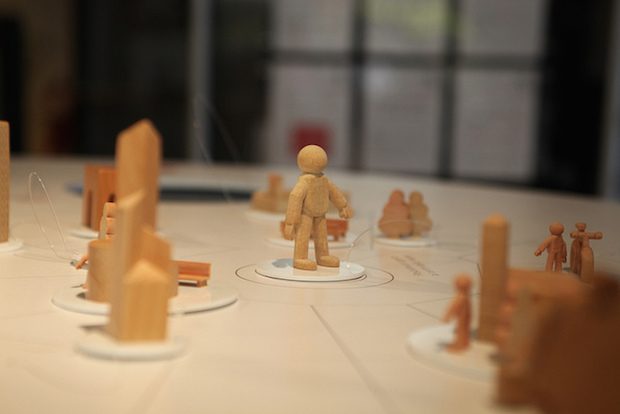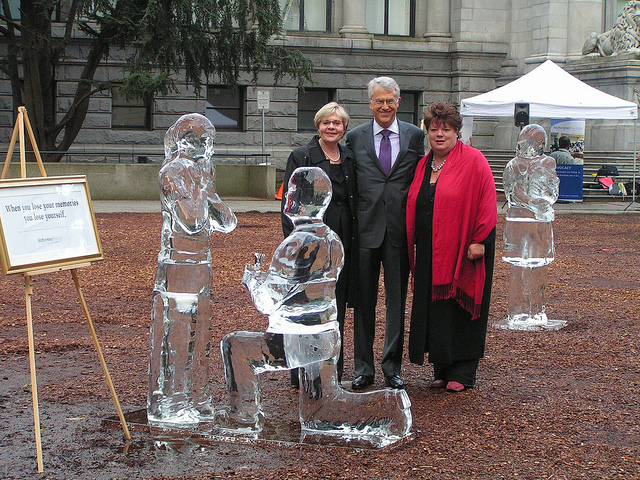

Ed: Firstly, what is a ‘virtual’ economy? And what exactly are people earning or exchanging in these online environments?
Vili: A virtual economy is an economy that revolves around artificially scarce virtual markers, such as Facebook likes or, in this case, virtual items and currencies in an online game. A lot of what we do online today is rewarded with such virtual wealth instead of, say, money.
Ed: In terms of ‘virtual earning power’ what was the relationship between character gender and user gender?
Vili: We know that in national economies, men and women tend to be rewarded differently for the same amount of work; men tend to earn more than women. Since online economies are such a big part of many people’s lives today, we wanted to know if this holds true in those economies as well. Looking at the virtual economies of two massively-multiplayer online games (MMOG), we found that there are indeed some gender differences in how much virtual wealth players accumulate within the same number of hours played. In one game, EVE Online, male players were on average 11 percent wealthier than female players of the same age, character skill level, and time spent playing. We believe that this finding is explained at least in part by the fact that male and female players tend to favour different activities within the game worlds, what we call “virtual pink and blue collar occupations”. In national economies, this is called occupational segregation: jobs perceived as suitable for men are rewarded differently from jobs perceived as suitable for women, resulting in a gender earnings gap.
However, in another game, EverQuest II, we found that male and female players were approximately equally wealthy. This reflects the fact that games differ in what kind of activities they reward. Some provide a better economic return on fighting and exploring, while others make it more profitable to engage in trading and building social networks. In this respect games differ from national economies, which all tend to be biased towards rewarding male-type activities. Going beyond this particular study, fantasy economies could also help illuminate the processes through which particular occupations come to be regarded as suitable for men or for women, because game developers can dream up new occupations with no prior gender expectations attached.
Ed: You also discussed the distinction between user gender and character gender…
Vili: Besides occupational segregation, there are also other mechanisms that could explain economic gender gaps, like differences in performance or outright discrimination in pay negotiations. What’s interesting about game economies is that people can appear in the guise of a gender that differs from their everyday identity: men can play female characters and vice versa. By looking at player gender and character gender separately, we can distinguish between how “being” female and “appearing to be” female are related to economic outcomes.
We found that in EVE Online, using a female character was associated with slightly less virtual wealth, while in EverQuest II, using a female character was associated with being richer on average. Since in our study the players chose the characters themselves instead of being assigned characters at random, we don’t know what the causal relationship between character gender and wealth in these games was, if any. But it’s interesting to note that again the results differed completely between games, suggesting that while gender does matter, its effect has more to do with the mutable “software” of the players and/or the coded environments rather than our immutable “hardware”.
Ed: The dataset you worked with could be considered to be an example of ‘big data’ (ie you had full transactional trace data people interacting in two games) — what can you discover with this sort of data (as opposed to eg user surveys, participant observation, or ethnographies); and how useful or powerful is it?
Vili: Social researchers are used to working with small samples of data, and then looking at measures of statistical significance to assess whether the findings are generalizable to the overall population or whether they’re just a fluke. This focus on statistical significance is sometimes so extreme that people forget to consider the practical significance of the findings: even if the effect is real, is it big enough to make any difference in practice? In contrast, when you are working with big data, almost any relationship is statistically significant, so that becomes irrelevant. As a result, people learn to focus more on practical significance — researchers, peer reviewers, journal editors, funders, as well as the general public. This is a good thing, because it can increase the impact that social research has in society.
In this study, we spent a lot of time thinking about the practical significance of the findings. In any national economy, a 11 percent gap between men and women would be huge. But in virtual economies, overall wealth inequality tends to be orders of magnitude greater than in national economies, so that a 11 percent gap is in fact relatively minuscule. Other factors, like whether one is a casual participant in the economy or a semi-professional, have a much bigger effect, so much so that I’m not sure if participants notice a gender gap themselves. Thus one of the key conclusions of the study was that we also need to look beyond traditional sociodemographic categories like gender to see what new social divisions may be appearing in virtual economies.
Ed: What do you think are the hot topics and future directions in research (and policy) on virtual economies, gaming, microwork, crowd-sourcing etc.?
Vili: Previously, ICT adoption resulted in some people’s jobs being eliminated and others being enhanced. This shift had uneven impacts on men’s and women’s jobs. Today, we are seeing an Internet-fuelled “volunterization” of some types of work — moving the work from paid employees and contractors to crowds and fans compensated with points, likes, and badges rather than money. Social researchers should keep track of how this shift impacts different social categories like men and women: whose work ends up being compensated in play money, and who gets to keep the conventional rewards.
Read the full article: Lehdonvirta, V., Ratan, R. A., Kennedy, T. L., and Williams, D. (2014) Pink and Blue Pixel$: Gender and Economic Disparity in Two Massive Online Games. The Information Society 30 (4) 243-255.
Vili Lehdonvirta is a Research Fellow and DPhil Programme Director at the Oxford Internet Institute, and an editor of the Policy & Internet journal. He is an economic sociologist who studies the social and economic dimensions of new information technologies around the world, with particular expertise in digital markets and crowdsourcing.
Vili Lehdonvirta was talking to blog editor David Sutcliffe.









